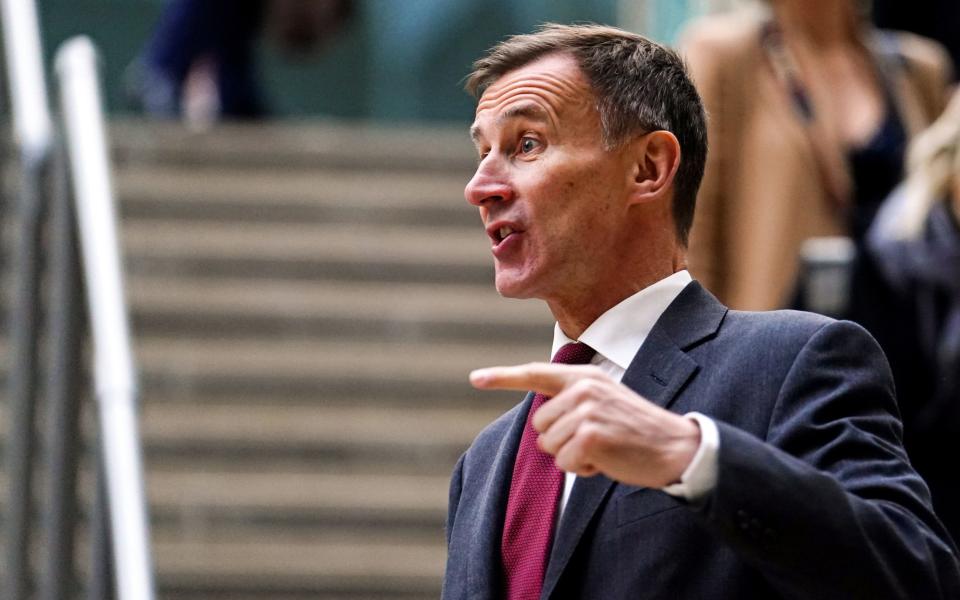Hoarding ‘Britcoin’ to be banned over bank run fears under Sunak’s digital currency proposals

Consumers will be blocked from hoarding new “digital pounds” issued by the Bank of England because officials fear a run on high street banks, according to a consultation paper that suggests a new form of money could be introduced by 2030.
Governor Andrew Bailey and Chancellor Jeremy Hunt revealed a roadmap on Monday night for creating a new central bank digital currency (CBDC) – dubbed “Britcoin” in the press – that could enter circulation by the end of this decade.
It comes after the The Telegraph revealed the pair would throw their weight behind its creation, saying a digital currency will “likely” be needed in future as cash use continues to decline.
It is understood that Britons will initially be limited to transferring a few thousand “digital pounds” into their accounts under plans being drawn up. The limit will be imposed in order to prevent “large and rapid outflows” from traditional high street banks.
Officials fear that the frictionless nature of digital money would allow people to shift their wealth almost instantly between accounts, giving rise to the risk that banks could quickly collapse if they find themselves under stress and customers begin to withdraw their funds.
Mr Hunt insisted on Monday that “protect[ing] financial stability” was a top priority, adding that “cash is here to stay”.
“A limit on individuals’ holdings would apply at least in the introductory phase,” the Treasury said. “This would strike a balance between both encouraging use and managing risks, such as the potential for large and rapid outflows from banking deposits into digital pounds. These limits could be amended in the future.”
Mr Hunt and Mr Bailey emphasised that CBDCs offer a “new way to pay” for consumers. Bank and Treasury officials believe it will promote competition and lead to cheaper financial services.
The Bank will provide a platform for private sector companies to provide financial services. However, officials are not exploring a route that would allow people to open an account at the Bank of England.
Officials stressed that any state-backed digital currency would sit alongside cash and be worth the same as its banknote equivalent. However, the plans are likely to fuel fears that banknotes could one day disappear altogether.
A digital pound would be issued by the Bank and would not bear interest. Unlike other digital currencies such as Bitcoin, it would also be risk-free.
The consultation, which will invite comments from businesses and the wider public over the next four months, stresses that no decision on whether to go ahead with a digital currency will be made until 2025 “at the earliest”.
The Bank's annual report reveals that millions of pounds has already been spent researching the economic benefits of a CBDC. Launching a digital currency will involve “significant public investment” that suggests the project could potentially cost the taxpayer billions of pounds.
Former Bank of England governor Lord King warned last week that the introduction of a CBDC offered “risks but no obvious benefits”. He cautioned against creating something the public didn't need just because it had the “sexy name of a digital currency”.
Mr Hunt said on Monday: “We want to investigate what is possible first, whilst always making sure we protect financial stability.”
Mr Bailey added: “This consultation and the further work the Bank will now do will be the foundation for what would be a profound decision for the country on the way we use money.”

